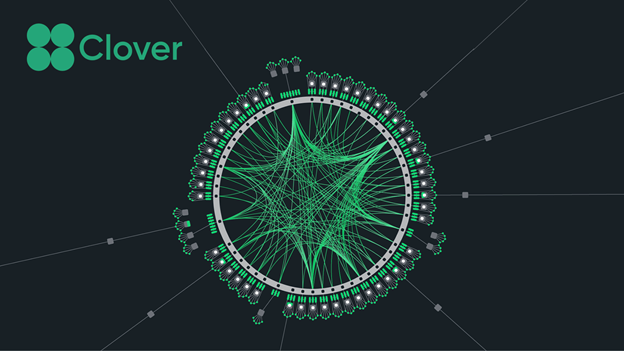The crypto industry has been moving faster and faster over the past two years, making it near impossible to keep up. Decentralized finance, meme tokens, NFTs, Play-to-Earn and the Metaverse are all hot topics in the crypto world at the moment. It has been argued that a decade of innovation happens every year in crypto.
Innovators in the industry have raced to build out blockchains that are faster, more affordable, reliable, more secure and even decentralized than ever before. Competition continues to be a driver of innovation in the crypto world. Bitcoin, Ethereum, Binance, Solana and many other major blockchains have raced to build platforms that offer better services to their users.
Now, with over 300 million users worldwide, many different blockchains have emerged with millions of users. To achieve global adoption, the solution will be through cooperation, not competition. With increased competition, the collaboration will prove to be a more effective and efficient use of a project’s resources.
The Polkadot blockchain was designed for this exact reason; to effectively create cross-chain bridges and increase collaboration between different chains.
Decentralized Finance
Delving into the field of decentralized finance, or DeFi, the very dream of Satoshi Nakamoto of disrupting the banking system with a decentralized and fair economy is being realized and closer than ever. There are currently hundreds of projects and dozens of them with real-world services to its users across numerous blockchains.
There has however been a number of issues that have had to be addressed and need to be overcome in the field of DeFi – over $10 billion has been lost in scams and hacks so far in 2021.
The Bank of International Settlements recently produced a comprehensive report on the DeFi industry. While crypto enthusiasts may be quick to complain about “FUD”, in actuality the report provides very specific and accurate criticisms to the problems in DeFi that, while they may not be wide-ranging or systemic, are prevalent and need to be addressed for the industry to mature and effectively compete with the banking sector.
A lack of liquidity and lack of ability to absorb shocks were highlighted as major issues and challenges in this report. Both of these are issues with projects on individual blockchains, which again can be resolved, or at least in part by connecting blockchains together securely and seamlessly.
Clover Finance Bridges the Gap
Built using Polkadot’s Substrate framework, Clover is the project built to unify the world of decentralized finance.
Clover Finance has already built a DeFi wallet that connects major blockchains together – and it is on mobile and desktop with Google Chrome and Brave Browser plug-ins. You can seamlessly operate on Polkadot, Binance Smart Chain, Ethereum and Solana using one digital wallet. The wallet also provides NFT Support across multiple chains and a dApp Marketplace.
As Clover continues to build out, the team seeks to add blockchain after blockchain, providing a support structure that will grow and enhance all DeFi projects on the blockchain. This will improve liquidity issues and strengthen the very foundation of the DeFi world, minimizing systemic risk, all the while enhancing user security and confidence.
Being a parachain of Polkadot, Clover’s blockchain has its own interoperable protocols that allow it to support applications and assets from the Ethereum blockchain, Solana, the Binance Smart Chain, and etc. Infrastructure is made ready for multi-chain decentralization, and also further supports future’s new blockchains.











